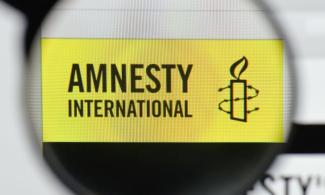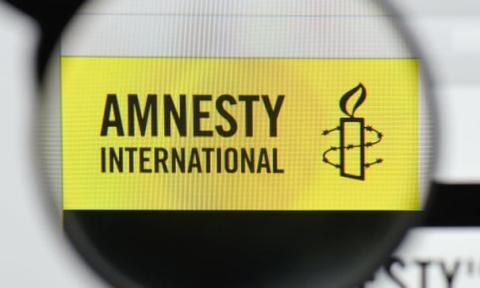
The organisation in its annual review of human rights in the region on Tuesday said rights defenders in Africa were persecuted and harassed for standing up and speaking out against governments.

Amnesty International has said that armed conflicts and state repression were causes of human rights abuses in Africa.
The organisation in its annual review of human rights in the region on Tuesday said rights defenders in Africa were persecuted and harassed for standing up and speaking out against governments.
According to the report, there are major developments from the past year, which include the deposition of Sudanese President Omar al-Bashir, Zimbabwean Government’s response to mass protests, and increasing attacks on civilians in Mozambique and Mali.
“In 2019, we saw incredible people power in mass protests which swept across Sub-Saharan Africa. From Sudan to Zimbabwe, and Democratic Republic of Congo to Guinea, people braved brutal crackdowns to stand up for their rights,” said Deprose Muchena, Amnesty International’s East and Southern Africa Director.
“In some cases, these protests led to major changes, following the toppling of Sudan’s long-time leader, Omar al-Bashir, the new authorities promised human rights friendly reforms and following protest a raft package of human rights reforms was introduced by the Ethiopian Government.
“Sadly, other changes needed are being blocked by repressive governments, who continue to carry out violations with impunity.
“In Sudan’s Darfur region, government forces continued to commit possible war crimes and other serious human rights violations including unlawful killings, sexual violence, systematic looting and forced displacement.
“In DRC, dozens of local and foreign armed groups together with the country’s security forces continued to carry out human rights abuses resulting in more than 2000 civilian deaths and at least one million were forcibly displaced in the course of 2019.
“In Somalia, civilians continued to live with attacks from the armed group Al-Shabaab, while government and allied international forces failed to take sufficient precautions to spare civilians from their attacks targeted at Al-Shabaab.
“Armed groups carried out attacks directed against civilians in Cameroon, Central African Republic and Burkina Faso, while governments failed to protect civilians,” he added.
The organisation said access to healthcare remains a major concern for people across the region, with underfunded health budgets leading to shortages of beds and drugs in hospitals.
It said, “Governments from Angola to Zimbabwe, Burundi to Cameroon have failed to respect the right to health, and conflicts have exacerbated the situation.
“With the COVID-19 pandemic looming, there is no time to waste in addressing the inequalities and human rights violations which make healthcare inaccessible for so many.”
The organisation also condemned the persecution and harassment of human rights defenders for standing up and speaking out against governments.
It said Burundi, Malawi, Mozambique, Eswatini, Zambia and Equatorial Guinea all saw surging crackdowns on activism in 2019.
“In 17 countries across sub-Saharan Africa, journalists were arbitrarily arrested and detained in 2019. In Nigeria for example, 19 cases of assault, arbitrary arrest, and detention of journalists were recorded, with many facing trumped up charges.
“In Burundi, authorities continued to crack down on the work of human rights defenders and civil society organisations including by subjecting them to prosecution and lengthy prison terms.
“Human rights violations forced hundreds of thousands of people in the region to flee their homes in search of protection. There were about 600,000 internally displaced people in CAR; more than 222,000 people in Chad, and over half a million in Burkina Faso,” the report added.